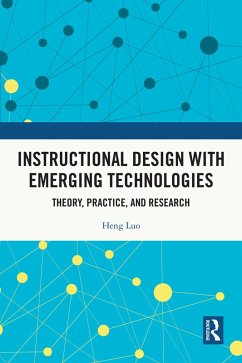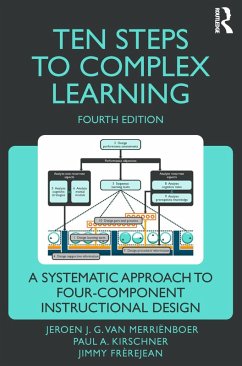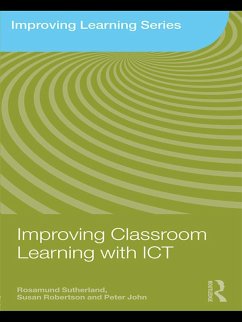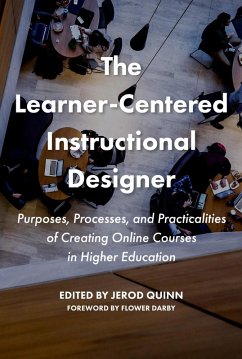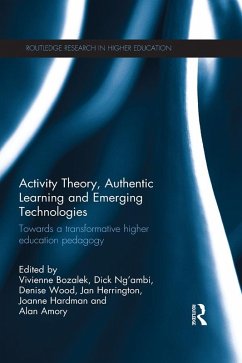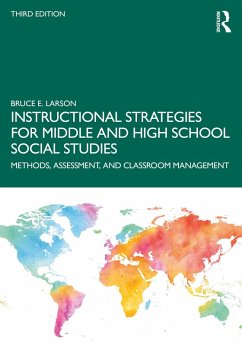
Instructional Design with Emerging Technologies (eBook, PDF)
Theory, Practice, and Research
Versandkostenfrei!
Sofort per Download lieferbar
42,95 €
inkl. MwSt.
Weitere Ausgaben:

PAYBACK Punkte
21 °P sammeln!
Bridging the gap between instructional design (ID) theory and practice in today's technology-enhanced learning environments, the book extends the current understanding of instructional science with an up-to-date perspective on emerging technologies and their affordances for teaching and learning.Positioning ID as a systematic process informed by theoretical assumptions, empirical evidence, and pragmatic considerations, this book provides an in-depth description and reflective analysis of good practice in technology-enhanced learning and design with a tripartite framework of pedagogy, technolog...
Bridging the gap between instructional design (ID) theory and practice in today's technology-enhanced learning environments, the book extends the current understanding of instructional science with an up-to-date perspective on emerging technologies and their affordances for teaching and learning.
Positioning ID as a systematic process informed by theoretical assumptions, empirical evidence, and pragmatic considerations, this book provides an in-depth description and reflective analysis of good practice in technology-enhanced learning and design with a tripartite framework of pedagogy, technology, and evidence. It covers well-established ID theories and models with real-life examples of their effective integration with technological innovations. The book aims to advance the understanding of ID from both pedagogical and technological perspectives to improve educational practice and theory development in the information age.
The book will be of interest to students and academics in educational technology, instructional science, and instructional design, as well as instructional designers and teachers.
Positioning ID as a systematic process informed by theoretical assumptions, empirical evidence, and pragmatic considerations, this book provides an in-depth description and reflective analysis of good practice in technology-enhanced learning and design with a tripartite framework of pedagogy, technology, and evidence. It covers well-established ID theories and models with real-life examples of their effective integration with technological innovations. The book aims to advance the understanding of ID from both pedagogical and technological perspectives to improve educational practice and theory development in the information age.
The book will be of interest to students and academics in educational technology, instructional science, and instructional design, as well as instructional designers and teachers.
Dieser Download kann aus rechtlichen Gründen nur mit Rechnungsadresse in A, B, BG, CY, CZ, D, DK, EW, E, FIN, F, GR, HR, H, IRL, I, LT, L, LR, M, NL, PL, P, R, S, SLO, SK ausgeliefert werden.




